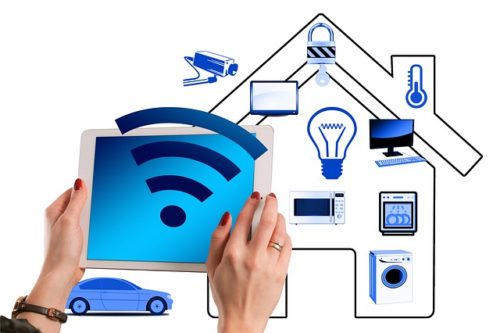When you think about a secure home, you likely think about an alarm system or locks on the doors and windows. Yet, you need to consider more than just the physical home security measures. Do you have any hot new gadgets in your home? Sure, they make your home smarter and more efficient, but how secure are they? Whether it be a smart TV, security camera, smart lock, gaming console, or other connected devices, they are convenient, but also insecure. That is why it is critical you have a smart home device security plan.
The first step is to determine how vulnerable your smart home actually is. Consider this: cyber criminals have hijacked baby monitors and spied on homeowners using their webcams. Think it won’t happen to you? Think again. Obviously, no one wants to have any of their smart devices hijacked. There are questions you need to consider.
What do the Bad Guys Look For?
What if a cyber criminal accesses the data on your smart thermostat to figure out whether you are home or away. It may sound like a far-fetched notion, but the future is now. You may even be vulnerable to a ransomware attack attached to one of your IoT devices. What will you do if a ransom to get your system back up and running is dangled over your head? Furthermore, what if a bad actor gains access to information you have shared with a digital or virtual assistant? If you shared passwords or financial information with an Amazon Echo or Google Home, they could be exposed in a hacking event.
In fact, according to a 2017 Internet Security Threat Report, the average ioT device was attacked once every two minutes during times of peak usage. Those are staggering numbers. It is also important to consider that hackers target home networks for a number of reasons. Whether it be to add your computer to botnet or to add malicious software to your boot record, there are many ways hackers can accomplish this.
The Best Ways to Secure Your Smart Home
Look at your smart home this way: your WiFi router is the “front door” to your smart home. The last thing you would ever do is leave your home insecure by not having a lock on your front door. The same should be true for your WiFi router. It should be solid and equipped with strong locks and encryption. Your WiFi router is the foundational aspect of your network. If it is not secured, your entire network is vulnerable.

Here are some smart home security quick tips to make your life easier and more secure:
- Specify a unique name for your router.
- Use strong encryption.
- Set up a guest network.
- Don’t leave usernames and passwords as the default.
- Use strong, unique passwords.
- Disable features you do not use.
- Always update your software and systems.
By keeping these and other tips in mind, you will ensure your home stays both smart and safe!
